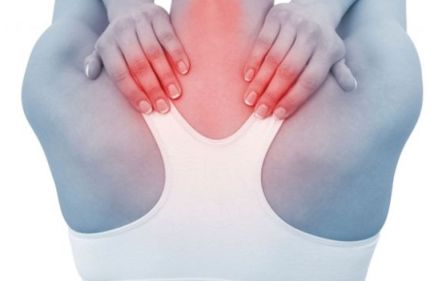Chronic illness: How to alleviate pain
2 out of 10 people live regularly with pain, one of the most common symptoms of chronic diseases such as headache, stomach problems or back pain. How to ease the pain? Let’s see some tips, simple and practical, for the most common cases.
Whatever the cause, it is clear that all pain is annoying and in some cases, disabling to perform the duties and responsibilities of everyday life. Living with the pain, when it comes to chronic diseases, may become commonplace. What can we do to alleviate it? We are going to see different types of disorders, and what to do, in which the pain tends to be a traveling companion:
Table of Contents
Headaches
Headaches can be caused by multiple causes, and is also one of the most common disorders. The headache may be a symptom – for example, a cold or flu – or a disorder itself, such as tension or migraines headaches.
What we must never do, if headaches are continuous, is medicate, as abusing drugs can trigger headaches or worse. To alleviate the pain, in these cases, we must also take care of the diet (avoid, for example, strong cheese, chocolate, wine…).
Back Pain
The 40% of Spaniards, according to medical data, with back pain, usually caused by poor posture or lack of exercise. Back pain can also be caused by worn intervertebral discs or trauma, injury and even stress (muscle tension and stiffness).
The physical exercise is essential to prevent back pain and prevent overloads, posturing seams and avoid excessive bed rest. As for drugs, it is common painkillers, muscle relaxants and anti-inflammatories, under medical prescription.
Stomach problems
Difficult digestions, flatulence, indigestion… are some of the most common digestive disorders that often come accompanied by abdominal pain. But there are other diseases that can also cause this pain, such as urinary tract infection or gynecological problems. It is important to address the signs and consult a doctor, especially if it lasts more than 3-4 days and is accompanied by vomiting, diarrhea, weight loss, fever, nausea and constipation.
Gastroesophageal Reflux
A burning sensation in the chest is one of its most characteristic symptoms, which appears in about half an hour after eating. If the chest pain is accompanied by shortness of breath can be a lung problem. And if the pressure is the center of the chest can warn of an anxiety problem.
If it is reflux, avoid foods like red meat, alcoholic beverages, fatty foods, coffee, chocolate and red wine. It is also advisable to dinner at least an hour before going to bed. For muscle pain can take anti-inflammatory. But if it is accompanied by nausea, vomiting, excessive sweating should go to the doctor as soon as possible.
